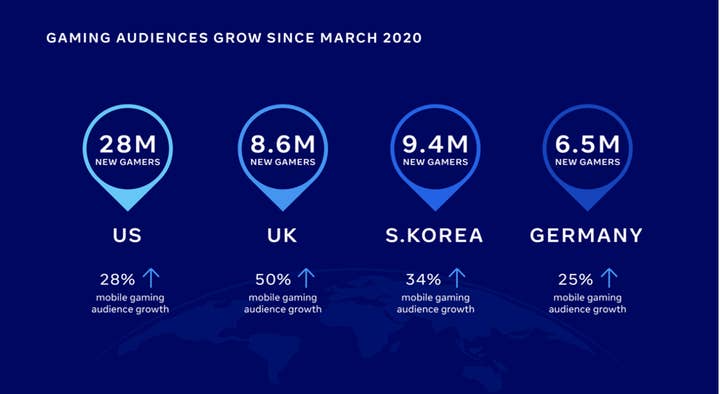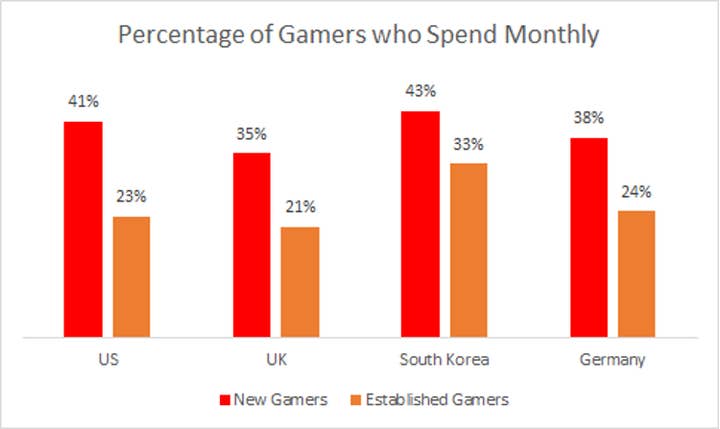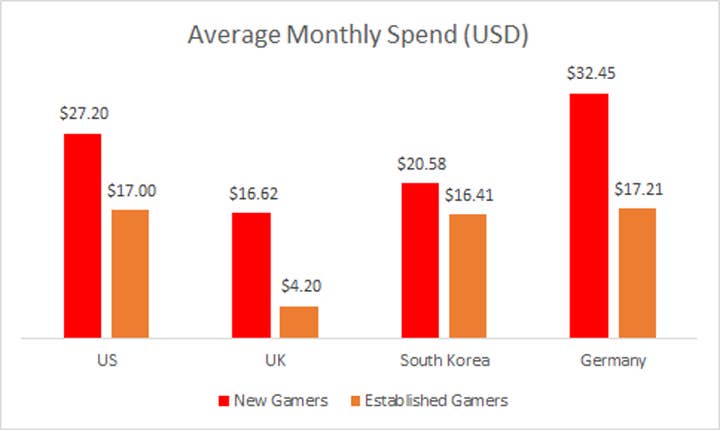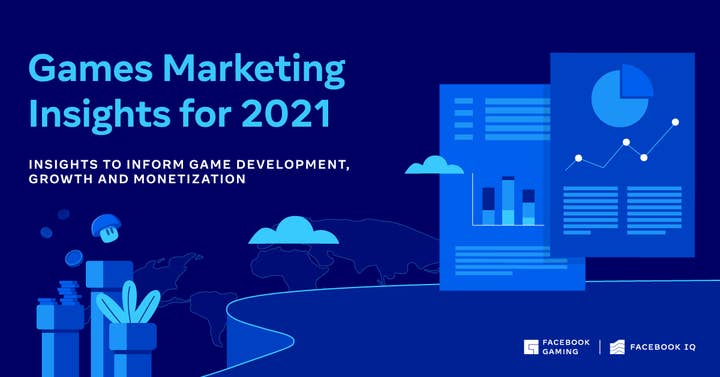Prepare for 2021 with new gaming audience insights
Facebook's vertical research manager Stephen Gray shares data on how the games industry differs in 2021
With more people staying home due to shelter-in-place and social distancing measures, 2020 brought disruption to many industries. And despite a surge in new and lapsed players, gaming was no exception. More people were playing, watching and streaming than ever before, and this growing demand for gaming has meant finding fresh ways of connecting with new players, bringing in new gamers as well as reengaging lapsed ones.
To understand the behavior of these new mobile gamers and the evolving game motivations of existing players, we surveyed consumers in nine countries to look at consumer behavior after March 2020. This article delves into data from four of those key strategic markets for many developers: US, UK, Germany, and South Korea. This research forms the basis for a new report, Games Marketing Insights for 2021, which is available to download for free today.
In 2020, we welcomed millions of new players
Shelter-in-place and social distancing measures have led to this surge of new gamers as people look for new forms of entertainment. To understand the impact, it's important to look at how many more people have been playing games since the beginning of the COVID-19 pandemic.
Since March 2020, mobile gaming audiences have grown in every market we examined, with 25% more gamers in Germany, 28% in the US, 34% in South Korea and 50% in the UK. This means over 50 million more people in these markets alone are now turning to mobile gaming as a major source of entertainment and social connection (Data courtesy of Facebook's Games Marketing Insights for 2021
These new gamers weren't just a temporary spike; these consumers were still gaming in July 2020, several months after the initial peak of the outbreak. More than half indicated that they plan to continue mobile gaming as the world begins to recover from the pandemic.

A look at these new mobile gamers
As the report shows, in all markets except South Korea, new mobile gamers skewed significantly more towards core gaming behaviors than their existing gamer counterparts. New gamers, in aggregate, were younger than existing gamers. They were also more likely to own a games console and to play game genres more aligned with core behaviors (such as shooters). They also reported playing more hours per week.

How and why gamers spend
New gamers were significantly more likely than existing ones to report spending money on mobile games since the start of the pandemic in all markets. They also reported spending more money per month on mobile games.


When it comes to the reasons why people spend money, there was more variety across markets than between the cohorts, some of which was tied to genre. In the US and UK, people were particularly motivated to pay to remove ads. In South Korea and Germany, people said they pay to avoid waiting or to skip difficult points (more typical of puzzle games).
According to previous research we conducted ('How Have ads affected games? We asked games publishers and players, Facebook, November 2020) people are open to seeing ads in games. In our survey, mobile gamers across all markets said they prefer free-to-play, ad-supported games. In the US, UK, and Germany, the preference for ad-supported models was stronger in existing players. New players, on the other hand, were more open to alternative monetization models such as in-app purchases.
Key considerations for game developers and marketers
1. Tailor your advertising campaigns to reach new gamers
There are millions of new mobile gamers across the globe; be sure to broaden the reach of your advertising campaigns to make sure that you're speaking to these new gamers with messaging that appeals towards their motivations for playing.
2. Understand the long-term value of new gamers
New gamers exhibit stronger alignment with behaviors and attitudes consistent with core gamers - more so than established gamers. Consider the long-term impact new players will have in the mobile gaming space such as more core gaming behaviors and motivators for playing and purchasing.
3. Use a monetization model that resonates with new gamers
Adopt mixed monetization models that take account of the increased time new gamers are spending in your games and their openness to in-app purchases.
Get your free copy of the report
To learn more about this growing audience, and access exclusive stats and research to help you prepare for the 2021 gaming landscape, download Games Marketing Insights for 2021 for free now.
